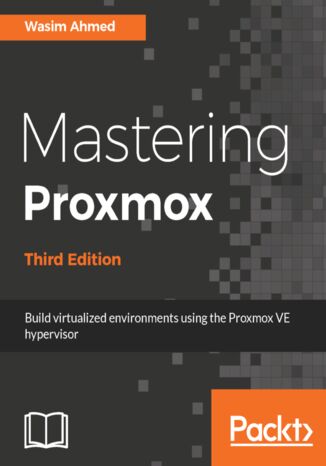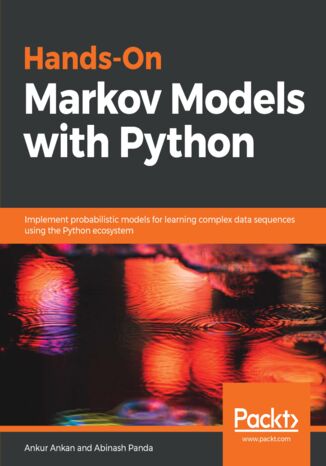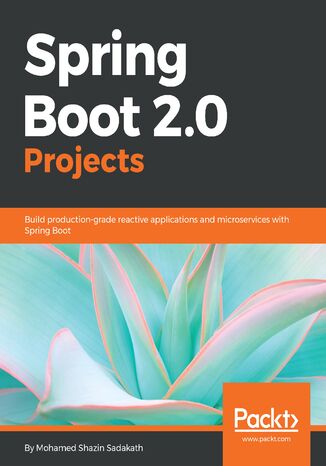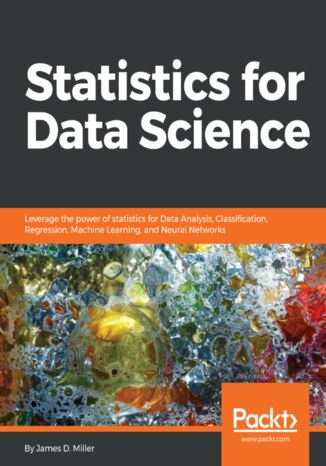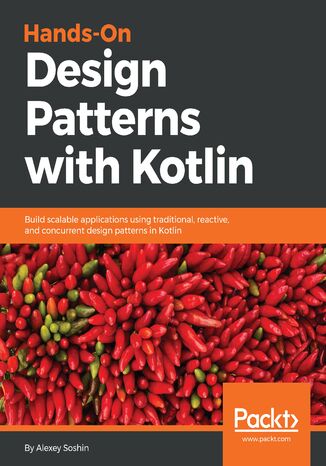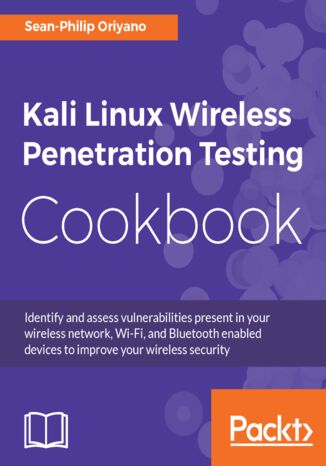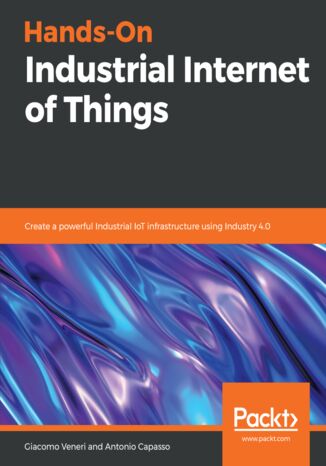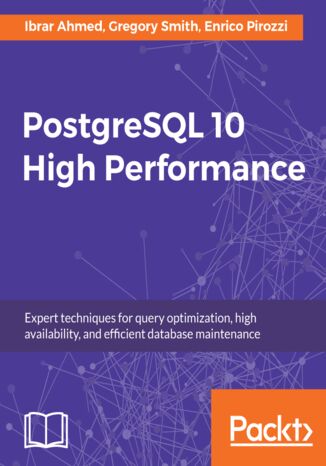Categories
Ebooks
-
Business and economy
- Bitcoin
- Businesswoman
- Coaching
- Controlling
- E-business
- Economy
- Finances
- Stocks and investments
- Personal competence
- Computer in the office
- Communication and negotiation
- Small company
- Marketing
- Motivation
- Multimedia trainings
- Real estate
- Persuasion and NLP
- Taxes
- Social policy
- Guides
- Presentations
- Leadership
- Public Relation
- Reports, analyses
- Secret
- Social Media
- Sales
- Start-up
- Your career
- Management
- Project management
- Human Resources
-
For children
-
For youth
-
Education
-
Encyclopedias, dictionaries
-
E-press
- Architektura i wnętrza
- Health and Safety
- Biznes i Ekonomia
- Home and garden
- E-business
- Ekonomia i finanse
- Esoterecism
- Finances
- Personal finance
- Business
- Photography
- Computer science
- HR & Payroll
- For women
- Computers, Excel
- Accounts
- Culture and literature
- Scientific and academic
- Environmental protection
- Opinion-forming
- Education
- Taxes
- Travelling
- Psychology
- Religion
- Agriculture
- Book and press market
- Transport and Spedition
- Healthand beauty
-
History
-
Computer science
- Office applications
- Data bases
- Bioinformatics
- IT business
- CAD/CAM
- Digital Lifestyle
- DTP
- Electronics
- Digital photography
- Computer graphics
- Games
- Hacking
- Hardware
- IT w ekonomii
- Scientific software package
- School textbooks
- Computer basics
- Programming
- Mobile programming
- Internet servers
- Computer networks
- Start-up
- Operational systems
- Artificial intelligence
- Technology for children
- Webmastering
-
Other
-
Foreign languages
-
Culture and art
-
School reading books
-
Literature
- Antology
- Ballade
- Biographies and autobiographies
- For adults
- Dramas
- Diaries, memoirs, letters
- Epic, epopee
- Essay
- Fantasy and science fiction
- Feuilletons
- Work of fiction
- Humour and satire
- Other
- Classical
- Crime fiction
- Non-fiction
- Fiction
- Mity i legendy
- Nobelists
- Novellas
- Moral
- Okultyzm i magia
- Short stories
- Memoirs
- Travelling
- Narrative poetry
- Poetry
- Politics
- Popular science
- Novel
- Historical novel
- Prose
- Adventure
- Journalism, publicism
- Reportage novels
- Romans i literatura obyczajowa
- Sensational
- Thriller, Horror
- Interviews and memoirs
-
Natural sciences
-
Social sciences
-
School textbooks
-
Popular science and academic
- Archeology
- Bibliotekoznawstwo
- Cinema studies
- Philology
- Polish philology
- Philosophy
- Finanse i bankowość
- Geography
- Economy
- Trade. World economy
- History and archeology
- History of art and architecture
- Cultural studies
- Linguistics
- Literary studies
- Logistics
- Maths
- Medicine
- Humanities
- Pedagogy
- Educational aids
- Popular science
- Other
- Psychology
- Sociology
- Theatre studies
- Theology
- Economic theories and teachings
- Transport i spedycja
- Physical education
- Zarządzanie i marketing
-
Guides
-
Game guides
-
Professional and specialist guides
-
Law
- Health and Safety
- History
- Road Code. Driving license
- Law studies
- Healthcare
- General. Compendium of knowledge
- Academic textbooks
- Other
- Construction and local law
- Civil law
- Financial law
- Economic law
- Economic and trade law
- Criminal law
- Criminal law. Criminal offenses. Criminology
- International law
- International law
- Health care law
- Educational law
- Tax law
- Labor and social security law
- Public, constitutional and administrative law
- Family and Guardianship Code
- agricultural law
- Social law, labour law
- European Union law
- Industry
- Agricultural and environmental
- Dictionaries and encyclopedia
- Public procurement
- Management
-
Tourist guides and travel
- Africa
- Albums
- Southern America
- North and Central America
- Australia, New Zealand, Oceania
- Austria
- Asia
- Balkans
- Middle East
- Bulgary
- China
- Croatia
- The Czech Republic
- Denmark
- Egipt
- Estonia
- Europe
- France
- Mountains
- Greece
- Spain
- Holand
- Iceland
- Lithuania
- Latvia
- Mapy, Plany miast, Atlasy
- Mini travel guides
- Germany
- Norway
- Active travelling
- Poland
- Portugal
- Other
- Przewodniki po hotelach i restauracjach
- Russia
- Romania
- Slovakia
- Slovenia
- Switzerland
- Sweden
- World
- Turkey
- Ukraine
- Hungary
- Great Britain
- Italy
-
Psychology
- Philosophy of life
- Kompetencje psychospołeczne
- Interpersonal communication
- Mindfulness
- General
- Persuasion and NLP
- Academic psychology
- Psychology of soul and mind
- Work psychology
- Relacje i związki
- Parenting and children psychology
- Problem solving
- Intellectual growth
- Secret
- Sexapeal
- Seduction
- Appearance and image
- Philosophy of life
-
Religion
-
Sport, fitness, diets
-
Technology and mechanics
Audiobooks
-
Business and economy
- Bitcoin
- Businesswoman
- Coaching
- Controlling
- E-business
- Economy
- Finances
- Stocks and investments
- Personal competence
- Communication and negotiation
- Small company
- Marketing
- Motivation
- Real estate
- Persuasion and NLP
- Taxes
- Social policy
- Guides
- Presentations
- Leadership
- Public Relation
- Secret
- Social Media
- Sales
- Start-up
- Your career
- Management
- Project management
- Human Resources
-
For children
-
For youth
-
Education
-
Encyclopedias, dictionaries
-
E-press
-
History
-
Computer science
-
Other
-
Foreign languages
-
Culture and art
-
School reading books
-
Literature
- Antology
- Ballade
- Biographies and autobiographies
- For adults
- Dramas
- Diaries, memoirs, letters
- Epic, epopee
- Essay
- Fantasy and science fiction
- Feuilletons
- Work of fiction
- Humour and satire
- Other
- Classical
- Crime fiction
- Non-fiction
- Fiction
- Mity i legendy
- Nobelists
- Novellas
- Moral
- Okultyzm i magia
- Short stories
- Memoirs
- Travelling
- Poetry
- Politics
- Popular science
- Novel
- Historical novel
- Prose
- Adventure
- Journalism, publicism
- Reportage novels
- Romans i literatura obyczajowa
- Sensational
- Thriller, Horror
- Interviews and memoirs
-
Natural sciences
-
Social sciences
-
Popular science and academic
-
Guides
-
Professional and specialist guides
-
Law
-
Tourist guides and travel
-
Psychology
- Philosophy of life
- Interpersonal communication
- Mindfulness
- General
- Persuasion and NLP
- Academic psychology
- Psychology of soul and mind
- Work psychology
- Relacje i związki
- Parenting and children psychology
- Problem solving
- Intellectual growth
- Secret
- Sexapeal
- Seduction
- Appearance and image
- Philosophy of life
-
Religion
-
Sport, fitness, diets
-
Technology and mechanics
Videocourses
-
Data bases
-
Big Data
-
Biznes, ekonomia i marketing
-
Cybersecurity
-
Data Science
-
DevOps
-
For children
-
Electronics
-
Graphics/Video/CAX
-
Games
-
Microsoft Office
-
Development tools
-
Programming
-
Personal growth
-
Computer networks
-
Operational systems
-
Software testing
-
Mobile devices
-
UX/UI
-
Web development
-
Management
Podcasts
Mastering Proxmox. Build virtualized environments using the Proxmox VE hypervisor - Third Edition
Proxmox is an open source server virtualization solution that has enterprise-class features for managing virtual machines, for storage, and to virtualize both Linux and Windows application workloads.You'll begin with a refresher on the advanced installation features and the Proxmox GUI to familiarize yourself with the Proxmox VE hypervisor. Then, you'll move on to explore Proxmox under the hood, focusing on storage systems, such as Ceph, used with Proxmox. Moving on, you'll learn to manage KVM virtual machines, deploy Linux containers fast, and see how networking is handled in Proxmox. You'll also learn how to protect a cluster or a VM with a firewall and explore the new high availability features introduced in Proxmox VE 5.0. Next, you'll dive deeper into the backup/restore strategy and see how to properly update and upgrade a Proxmox node. Later, you'll learn how to monitor a Proxmox cluster and all of its components using Zabbix. Finally, you'll discover how to recover Promox from disaster strikes through some real-world examples. By the end of the book, you'll be an expert at making Proxmox work in production environments with minimal downtime.
Hidden Markov Model (HMM) is a statistical model based on the Markov chain concept. Hands-On Markov Models with Python helps you get to grips with HMMs and different inference algorithms by working on real-world problems. The hands-on examples explored in the book help you simplify the process flow in machine learning by using Markov model concepts, thereby making it accessible to everyone.Once you’ve covered the basic concepts of Markov chains, you’ll get insights into Markov processes, models, and types with the help of practical examples. After grasping these fundamentals, you’ll move on to learning about the different algorithms used in inferences and applying them in state and parameter inference. In addition to this, you’ll explore the Bayesian approach of inference and learn how to apply it in HMMs.In further chapters, you’ll discover how to use HMMs in time series analysis and natural language processing (NLP) using Python. You’ll also learn to apply HMM to image processing using 2D-HMM to segment images. Finally, you’ll understand how to apply HMM for reinforcement learning (RL) with the help of Q-Learning, and use this technique for single-stock and multi-stock algorithmic trading.By the end of this book, you will have grasped how to build your own Markov and hidden Markov models on complex datasets in order to apply them to projects.
Spring Boot is a lightweight framework that provides a set of tools to create production-grade applications and services. Spring Boot 2.0 Projects is a comprehensive project-based guide for those who are new to Spring, that will get you up to speed with building real-world projects. Complete with clear step-by-step instructions, these easy-to-follow tutorials demonstrate best practices and key insights into building efficient applications with Spring Boot. The book starts off by teaching you how to develop a web application using Spring Boot, followed by giving you an understanding of creating a Spring Boot-based simple blog management system that uses Elasticsearch as the data store. Next, you’ll build a RESTful web services application using Kotlin and the Spring WebFlux framework - a new framework that enables you to create reactive applications in a functional way. Toward the last few chapters, you will build a taxi-hailing API with reactive microservices using Spring Boot, in addition to developing a Twitter clone with the help of a Spring Boot backend. To build on your knowledge further, you’ll also learn how to construct an asynchronous email formatter.By the end of this book, you’ll have a firm foundation in Spring programming and understand how to build powerful, engaging applications in Java using the Spring Boot framework.
Data science is an ever-evolving field, which is growing in popularity at an exponential rate. Data science includes techniques and theories extracted from the fields of statistics; computer science, and, most importantly, machine learning, databases, data visualization, and so on.This book takes you through an entire journey of statistics, from knowing very little to becoming comfortable in using various statistical methods for data science tasks. It starts off with simple statistics and then move on to statistical methods that are used in data science algorithms. The R programs for statistical computation are clearly explained along with logic. You will come across various mathematical concepts, such as variance, standard deviation, probability, matrix calculations, and more. You will learn only what is required to implement statistics in data science tasks such as data cleaning, mining, and analysis. You will learn the statistical techniques required to perform tasks such as linear regression, regularization, model assessment, boosting, SVMs, and working with neural networks.By the end of the book, you will be comfortable with performing various statistical computations for data science programmatically.
Design patterns enable you as a developer to speed up the development process by providing you with proven development paradigms. Reusing design patterns helps prevent complex issues that can cause major problems, improves your code base, promotes code reuse, and makes an architecture more robust.The mission of this book is to ease the adoption of design patterns in Kotlin and provide good practices for programmers. The book begins by showing you the practical aspects of smarter coding in Kotlin, explaining the basic Kotlin syntax and the impact of design patterns. From there, the book provides an in-depth explanation of the classical design patterns of creational, structural, and behavioral families, before heading into functional programming. It then takes you through reactive and concurrent patterns, teaching you about using streams, threads, and coroutines to write better code along the way By the end of the book, you will be able to efficiently address common problems faced while developing applications and be comfortable working on scalable and maintainable projects of any size.
More and more organizations are moving towards wireless networks, and Wi-Fi is a popular choice. The security of wireless networks is more important than ever before due to the widespread usage of Wi-Fi networks. This book contains recipes that will enable you to maximize the success of your wireless network testing using the advanced ethical hacking features of Kali Linux. This book will go through techniques associated with a wide range of wireless penetration tasks, including WLAN discovery scanning, WEP cracking, WPA/WPA2 cracking, attacking access point systems, operating system identification, vulnerability mapping, and validation of results. You will learn how to utilize the arsenal of tools available in Kali Linux to penetrate any wireless networking environment. You will also be shown how to identify remote services, how to assess security risks, and how various attacks are performed. By finishing the recipes, you will feel confident conducting wireless penetration tests and will be able to protect yourself or your organization from wireless security threats.
Giacomo Veneri, Antonio Capasso
We live in an era where advanced automation is used to achieve accurate results. To set up an automation environment, you need to first configure a network that can be accessed anywhere and by any device. This book is a practical guide that helps you discover the technologies and use cases for Industrial Internet of Things (IIOT).Hands-On Industrial Internet of Things takes you through the implementation of industrial processes and specialized control devices and protocols. You’ll study the process of identifying and connecting to different industrial data sources gathered from different sensors. Furthermore, you’ll be able to connect these sensors to cloud network, such as AWS IoT, Azure IoT, Google IoT, and OEM IoT platforms, and extract data from the cloud to your devices.As you progress through the chapters, you’ll gain hands-on experience in using open source Node-Red, Kafka, Cassandra, and Python. You will also learn how to develop streaming and batch-based Machine Learning algorithms.By the end of this book, you will have mastered the features of Industry 4.0 and be able to build stronger, faster, and more reliable IoT infrastructure in your Industry.
PostgreSQL database servers have a common set of problems that they encounter as their usage gets heavier and requirements get more demanding. Peek into the future of your PostgreSQL 10 database's problems today. Know the warning signs to look for and how to avoid the most common issues before they even happen.Surprisingly, most PostgreSQL database applications evolve in the same way—choose the right hardware, tune the operating system and server memory use, optimize queries against the database and CPUs with the right indexes, and monitor every layer, from hardware to queries, using tools from inside and outside PostgreSQL. Also, using monitoring insight, PostgreSQL database applications continuously rework the design andconfiguration. On reaching the limits of a single server, they break things up; connection pooling, caching, partitioning, replication, and parallel queries can all help handle increasing database workloads.By the end of this book, you will have all the knowledge you need to design, run, and manage your PostgreSQL solution while ensuring high performance and high availability

